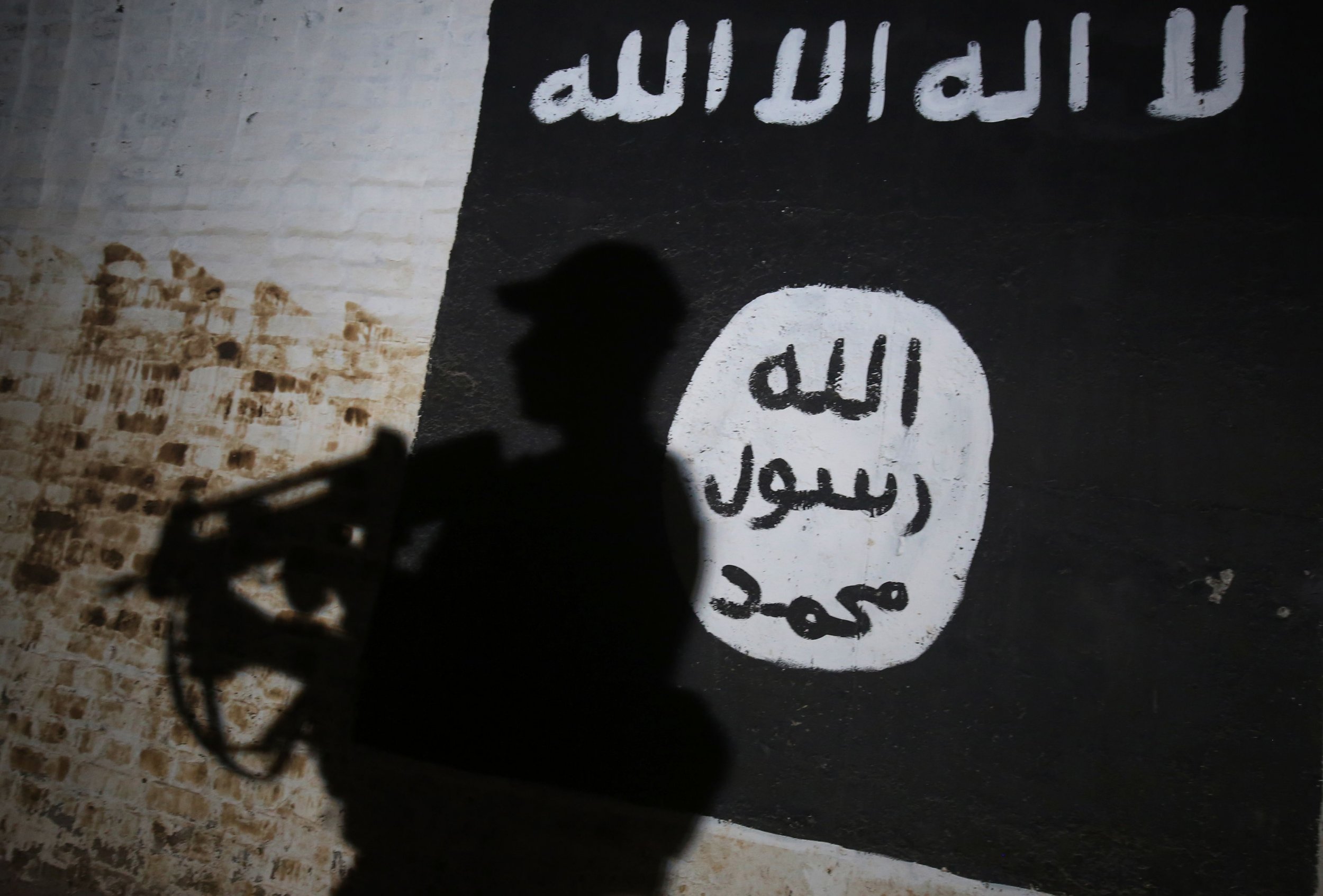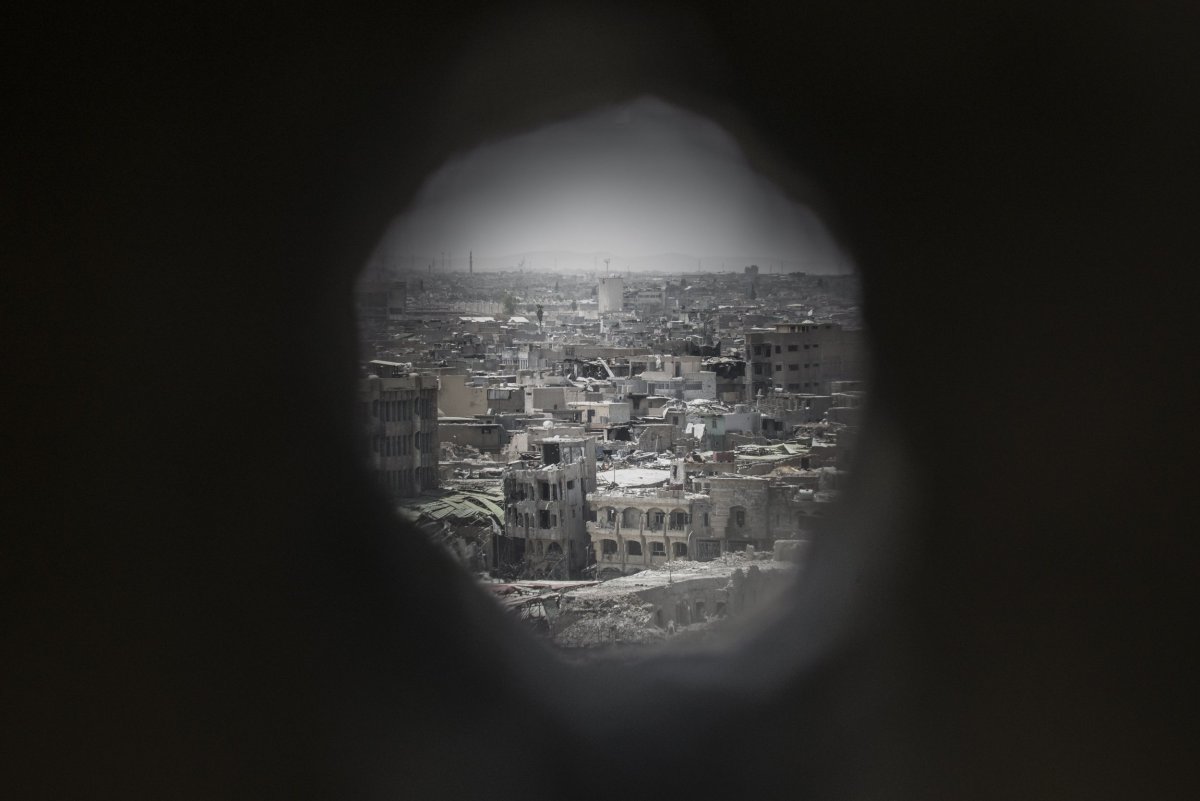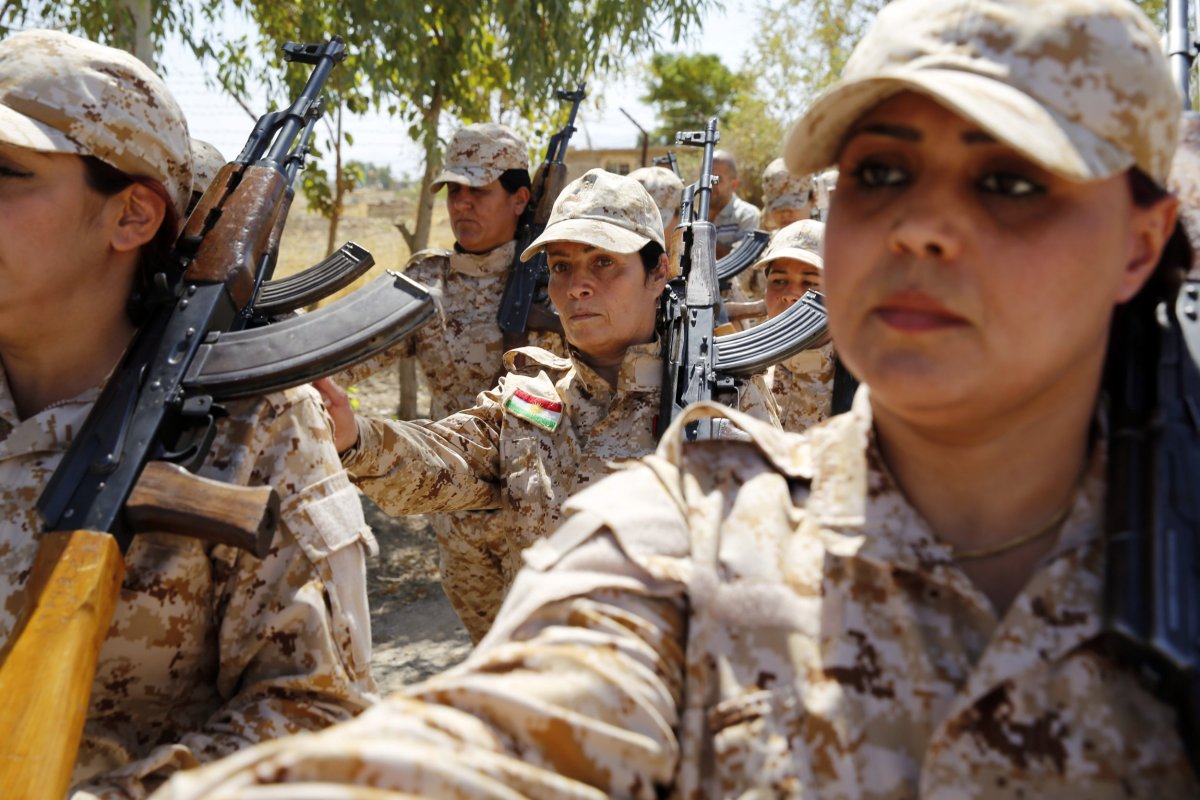
When looking at Iraq, it is easy to understand why this country has been at the forefront of world news for more than a decade: it represents one of the most complex geopolitical pictures in the region.
I will try here to analyze and understand the landscape of the U.S. and international coalition within the context of Iraq and the fight against the Islamic State group (ISIS), even though we are probably at least a year away from the country's full liberation since Tal Afar, Qaim, Hawega, and small pockets remain under ISIS's control.
From the perspective of the U.S. and coalition members, the liberation of Mosul means the end of the demi-state entity of ISIS. The militant group's containment will remain an important goal for the United States, especially with the previous expansionist threat it posed in Lebanon, Jordan and Saudi Arabia.
The U.S. regards the problem of ISIS in terms of geopolitical regional considerations, while Iraqis only look at the situation from a purely national or local perspective. After the liberation of Mosul, the U.S. might turn its attention and focus towards Syria, where it is trying to oust ISIS from Raqqa, the group's de facto capital, on top of the complexities and anticipated ramifications of the civil war.
To Americans, the Iraqi political equation relates more to how close or far Iraqis are from their allies and enemies, such as Iran, in the region.

On the Iraqi side, a lack of common vision toward the U.S. does not help either party to strengthen our relationship. This begs the question: what is the nature of Baghdad and Washington relations following —encompassing security, military and political cooperation— following the liberation of Mosul?
The U.S. will not wait for Iraq to provide an answer to this question, but will work quietly to push the country toward security and political stability—especially since the U.S. knows the extent of the rift created by ISIS's occupation and, before it, a decade-long insurgency.
In comparison with Iraq's military advancement, the current political discourse has stalled. This is a result of different internal and geopolitical visions within the country's political arena. This weakness reflects the depth of the complexity and breadth of the parties involved . Stakeholders see the liberation of Mosul as a crossroad that divides between the history of the Islamic State group's rise and the politics that encouraged its spread, and the future of Iraq in the context of ISIS's desires and determination to increase its influence in the country.
To protect against an ISIS revival, the Iraqi government, the United Nations, and friendly countries like U.S. and Iran must focus the dialog on unifying the visions between the different parties in Iraq. Knowing that infrastructure and energy sources in the western regions (Sunni lands) are poor will make the pursuit to divide Iraq into federal units counterproductive. It is important to remember that Sunni strength lies in Iraq being a united, cohesive country, likewise for the Kurds and their independence project.
The Iraqi government is feeling the repercussions of attrition in their fight against terrorism, as well as facing severe challenges (security, political and economic) that limit their focus to a few priorities.
Regarding the recent tensions between Iraq and Turkey, and Ankara's interference in Iraq, the containment of Turkey's expansionist approach might be a focus of the U.S. It understands that the political volatility in Turkey will have a direct impact on the course of events during the liberation of Iraq and Syria from ISIS.
Here, Turkey will try to cement its military presence to be a permanent player in the Iraqi and Syrian discussion around Mosul and others cities like Raqqa, because of its view that that the Kurdistan Workers' Party (PKK) is a national security threat.
The strength of the Peshmerga fighters in the liberation of Mosul would be a positive element in the consolidation and unity of Iraq but their willingness to cooperate with Baghdad on the control of areas they have liberated within the conflict and disputed zones will depend on how far it goes to achieving their ultimate goal: an independent Kurdistan.

Here is a golden opportunity for the Kurdish leadership in Iraq to work with other Iraqis to build on the foundations of a new, mutually beneficial strategy with the central government and all of the country's communities. Will coexistence and common development with the south be their project? Or will they bank on further trenches being built, resulting in a zero sum game?
The participation of Kurdish Peshmerga forces in the liberation of Nineveh Province will bolster international support for the Kurds' cause, especially within U.S. Congress.
All Kurdish eyes will be on Washington D.C. after the September independence referendum to see what freedom and maneuvering that Kurdish players will be granted on the global stage.
Geopolitics remains an important factor within Iraq and the region; the U.S. and President Trump should not lose sight of that.
Lukman Faily was the Iraqi Ambassador to the United States between 2013 and 2016. He also served as Iraq's Ambassador to Japan from 2010 to 2013.
Uncommon Knowledge
Newsweek is committed to challenging conventional wisdom and finding connections in the search for common ground.
Newsweek is committed to challenging conventional wisdom and finding connections in the search for common ground.
About the writer
To read how Newsweek uses AI as a newsroom tool, Click here.








